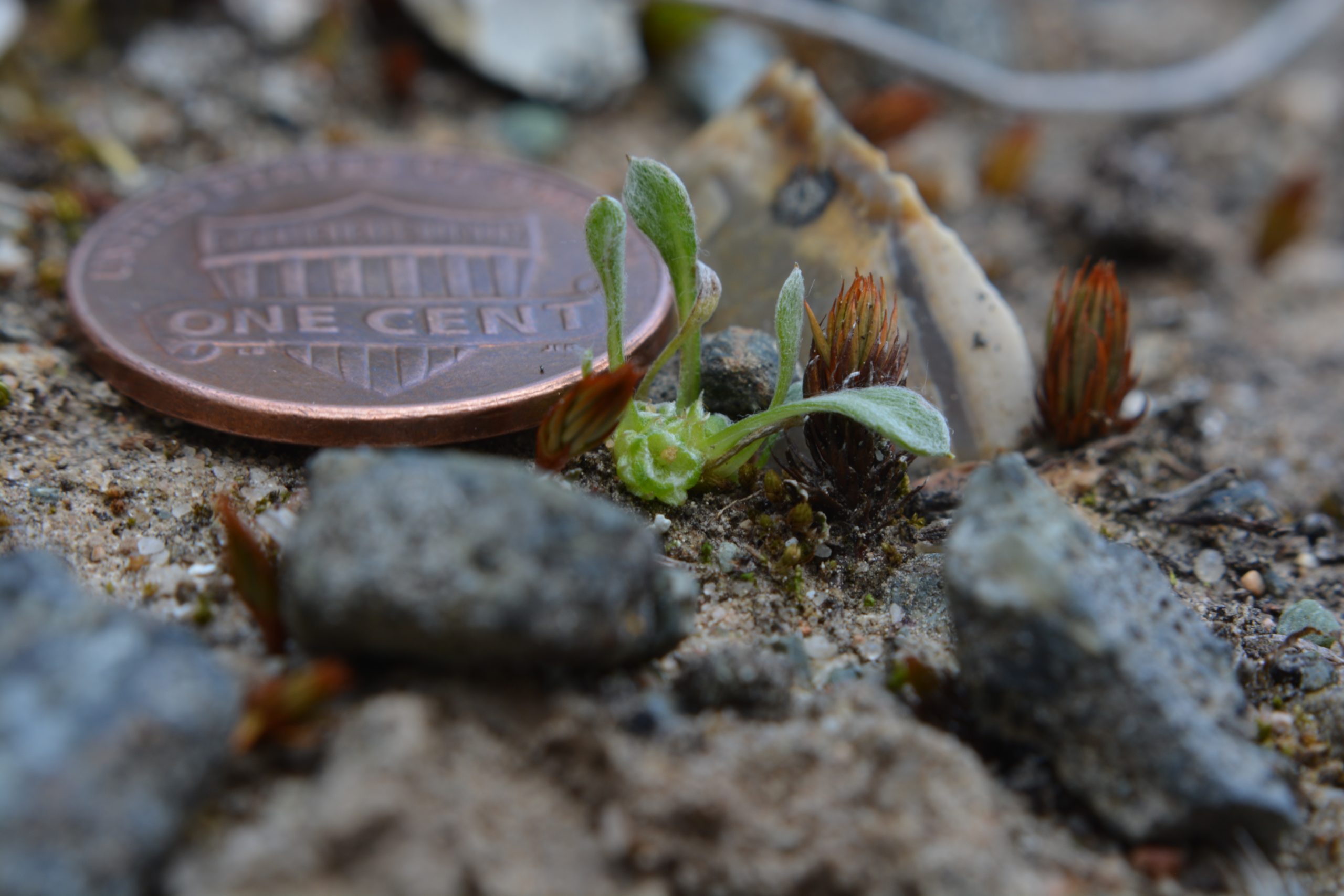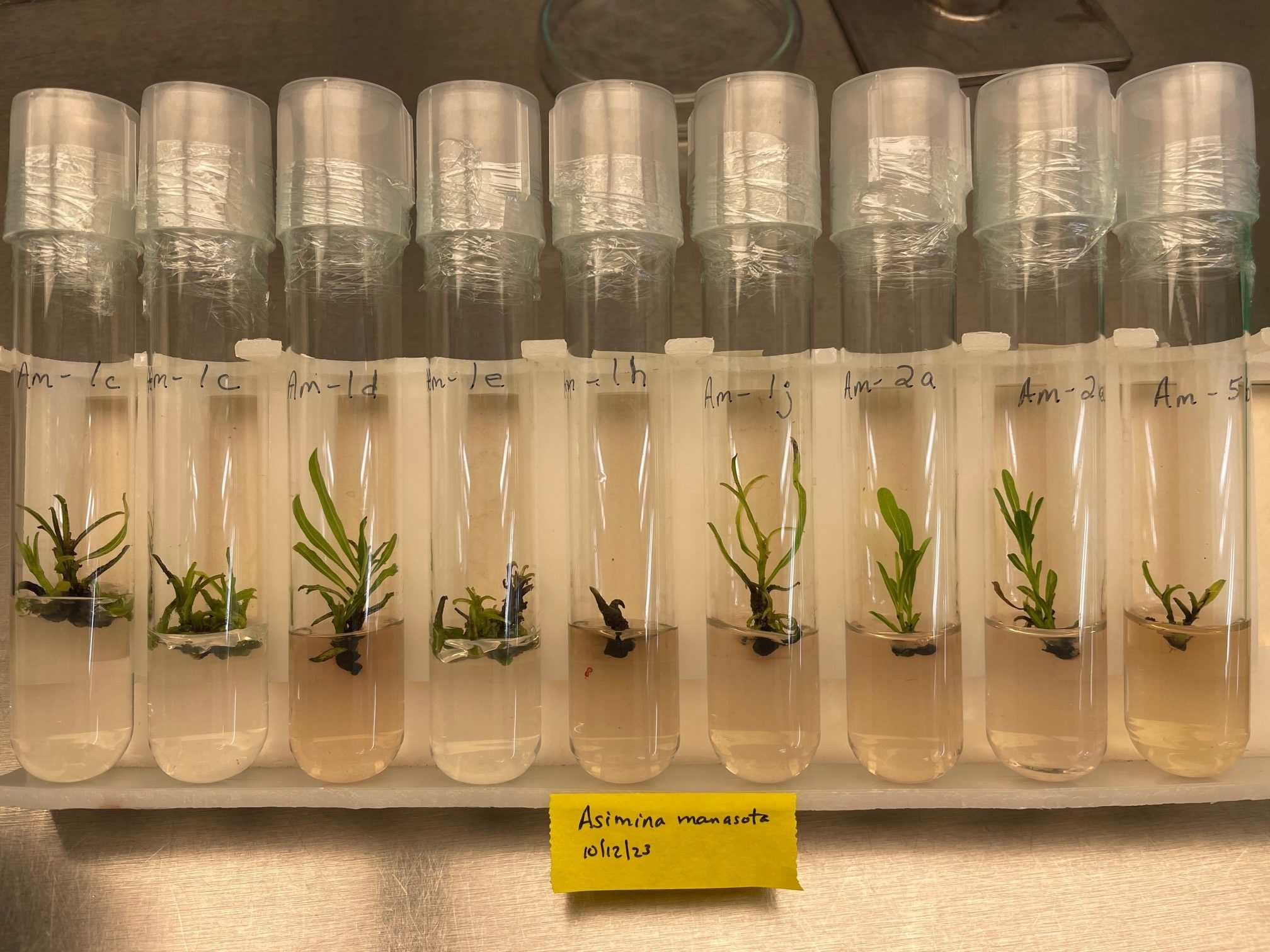Growing the National Collection
We are proud to report a remarkable growth of the CPC National Collection this year, due to an enduring commitment to conservation throughout our network of Conservation Partners. With 254 new species secured in collection in 2023, CPC Participating Institutions now collectively possess an impressive total of 2,605 North American rare plant species stored safely in ex-situ conservation collections. This brings the CPC network over 59% of the way towards our goal of securing all 4,400 rare and endangered North American plant taxa in ex-situ conservation collections! These new additions represent collections from 19 different Participating Institutions, with species spanning 18 states and territories. Our growing partnerships allow us to prioritize and target species as a collective, achieving far more for rare plants together than would be possible alone.

Santa Ynez Groundstar (Ancistrocarphus keilii)
Santa Ynez Groundstar is a critically imperiled species known only from Santa Barbara County, California. For 30 years, no individuals of this diminutive species were observed or documented. In 2023, a collaborative group of botanists from Santa Barbara Botanic Garden and California Native Plant Society conducted a successful expedition to survey the last documented occurrence of this plant. The scientists collected new voucher specimens, completed conservation seed banking, acquired the first-ever photos of this plant in living condition, and collected detailed data about the status of the population and its habitat. Seed collection of Santa Ynez Groundstar was funded by the California Plant Rescue initiative in 2023, and this species is now held in the CPC National Collection at Santa Barbara Botanic Garden.
Peck’s Milkvetch (Astragalus peckii)
Peck’s Milkvetch is a vulnerable species endemic to central Oregon, where it grows along the Cascade Mountain Range. This species, one of many named in honor of renowned Oregon botanist Morton E. Peck, is listed as Threatened by the state of Oregon. According to the Oregon Department of Agriculture, it is threatened primarily by off-road vehicles, invasive weed encroachment, and urbanization. Peck’s Milkvetch is held in the CPC National Collection at Rae Selling Berry Seed Bank, where over 16,000 seeds from 163 maternal plants, representing 7 wild populations, are safeguarded. Astragalus peckii was sponsored as part of CPC’s 40th Anniversary Campaign, helping to fund conservation efforts for this rare plant at Rae Selling Berry Seed Bank.


Manasota Pawpaw (Asimina manasota)
Manasota Pawpaw is a critically imperiled species endemic to Manatee and Sarasota Counties in southern Florida. Since it is an exceptional species whose seeds cannot be stored using traditional methods, techniques such as tissue cryopreservation must be employed to conserve Manasota Pawpaw in long-term storage. As part of the Florida Plant Rescue (FLPR) initiative in 2023, this species was targeted in an exceptional species project and brought into the CPC National Collection at Marie Selby Botanical Gardens and the Cincinnati Zoo and Botanical Garden Center for Conservation and Research of Endangered Wildlife (CREW). With funding from FLPR, Selby Gardens collected immature shoot tissue from the wild to use in tissue culture and cryopreservation. Selby Gardens also partnered with CREW to cryopreserve A. manasota, and CREW staff have since successfully grown three germplasm lines in vitro from A. manasota collections made in 2023.